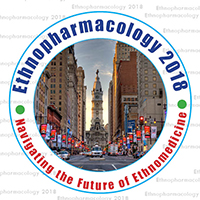
Hiroshi Kobayashi
Chiba University, Japan
Title: Innovative methods for exploitation of anti-cancer drugs working in acidified nests
Biography
Biography: Hiroshi Kobayashi
Abstract
It is well known that cancer nests are often acidified. The acidity may affect anti-cancer chemotherapy and immune responses.
Our group found that the cytosolic pH decreased in cancer cells proliferating in acidic medium and approximately 700 genes were expressed at a higher level in such cells, leading us to suppose that an anti-cancer drug whose target is the product of such genes may work in acidic cancer nests with less of effects on alkaline normal tissues. We established the in vitro assay system for screening anti-cancer drugs working in acidic nests, and approximately 300 compounds were examined using various cancer cell lines. Among them, four compounds, Lovastatin, Cantharidin, Manumycin A, and Ionomycin, were found to have anti-cancer activity preferentially at acidic pH. Next, the anti-cancer activity of statins was focused. Promising results of statins as an anti-cancer drug have been reported in mouse models and cancer patients. Stains have been used in patients with hyperlipidemia and side effects have been reported in less than 1% patients, supporting that anti-cancer drugs working preferentially in acidic cancer nests have less of effects on normal tissues whose pH is slightly alkaline. Since alkaline medium has been used for screening of drugs, it would be highly possible that novel anti-cancer drugs with fewer side effects would be exploited using our methods. Our experimental system would be also useful for elucidation of immune functions in acidic cancer nests. It was shown with this method that TCR signaling does not work under acidic conditions.

